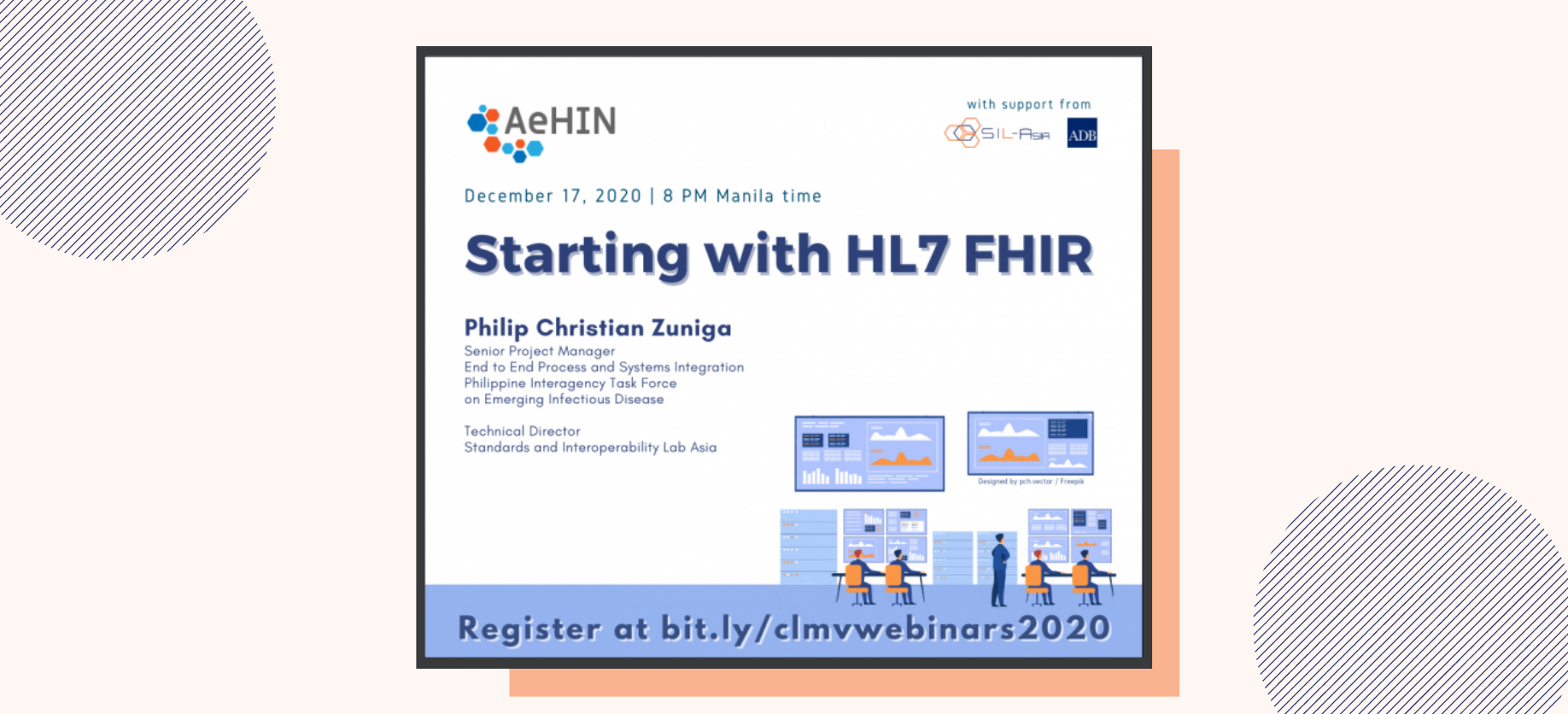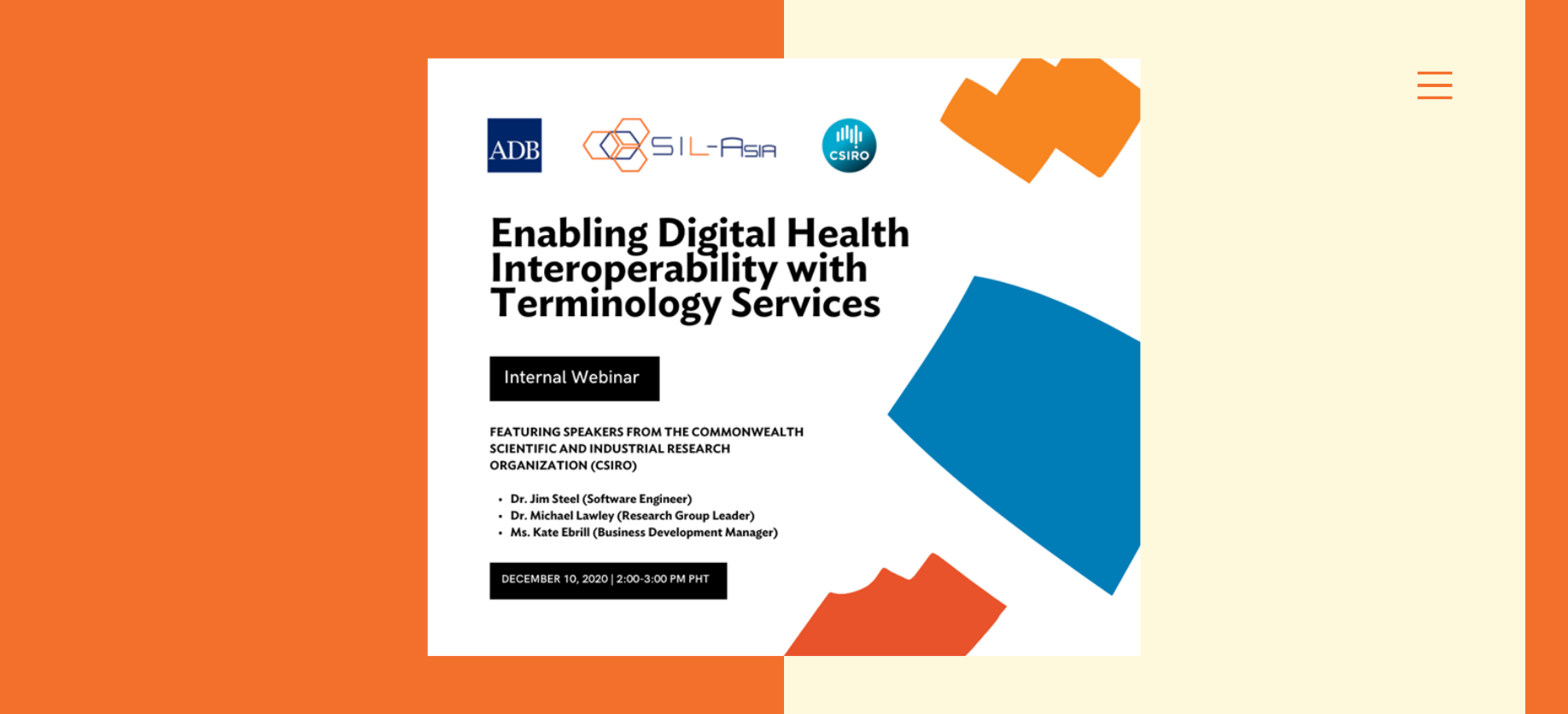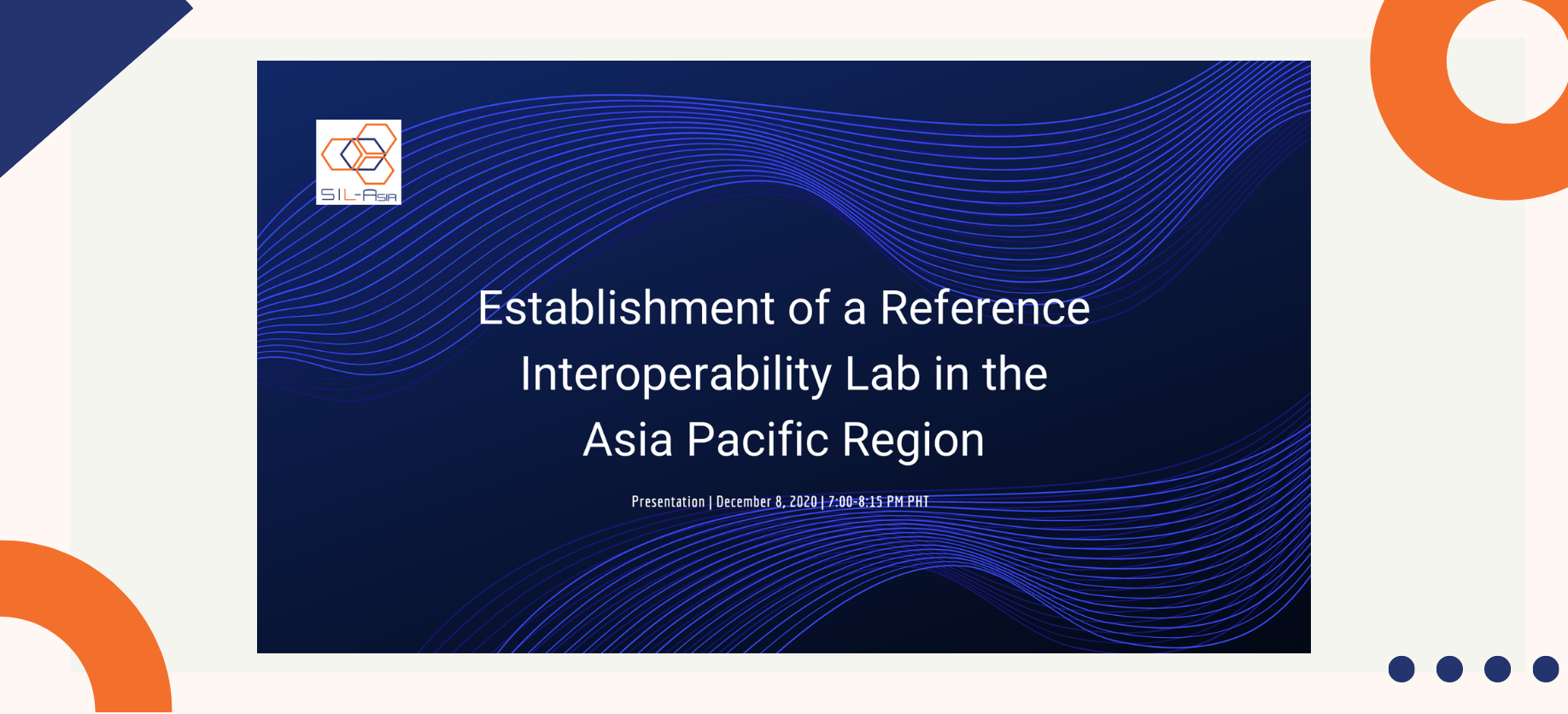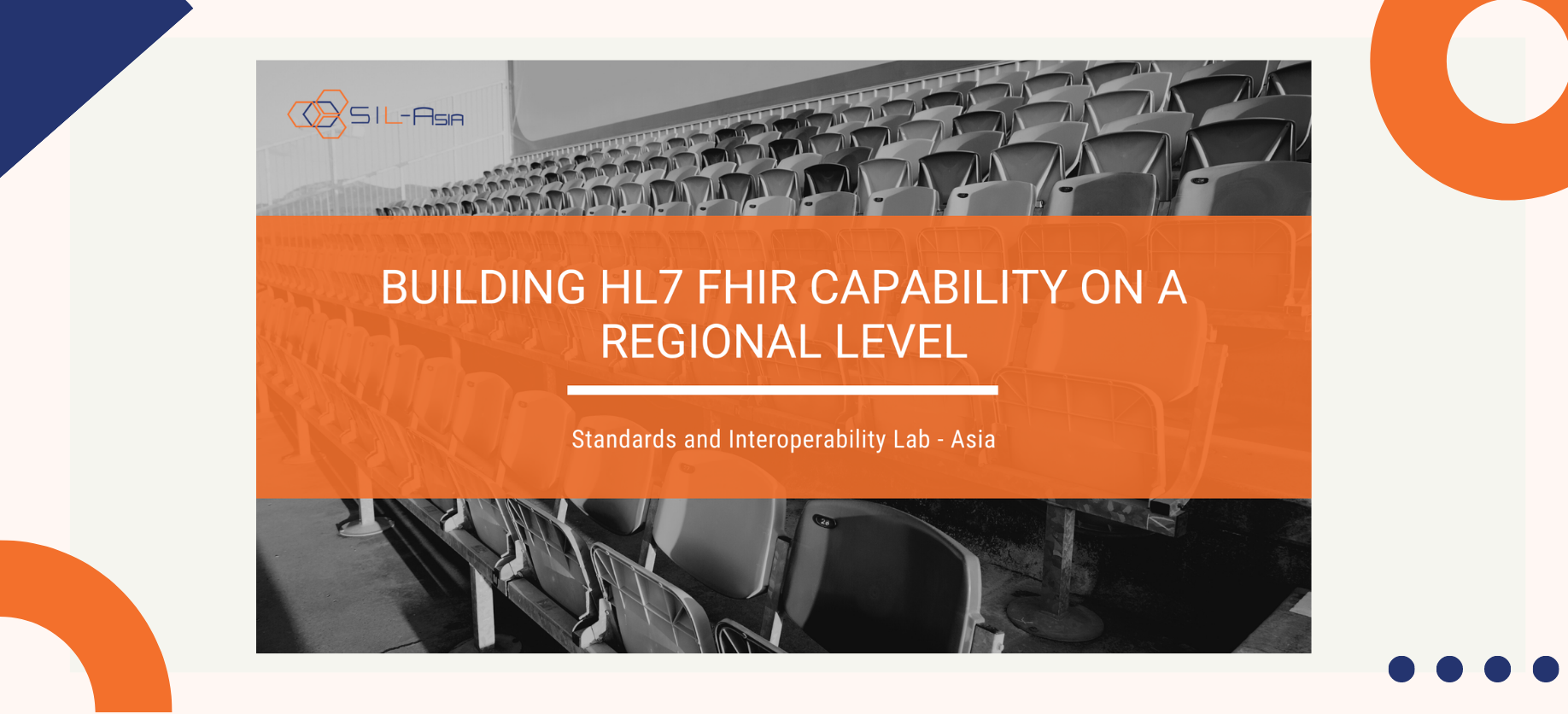VIRTUAL – The Standards and Interoperability Lab – Asia (SIL-Asia) discussed the role that standards and interoperability have played in the overall COVID-19 response ICT ecosystem in the Philippines last December 16, 2020 via the AeHIN Hour. SIL-Asia Technical Director, Philip Christian Zuniga explained how Health Level Seven International – Fast Healthcare Interoperability Resources (HL7-FHIR) was used as a standard in the ecosystem, and how the various components of the strategy were modeled using HL7 FHIR. Forty-seven participants attended the webinar session.
In the Philippines, the COVID-19 Inter-Agency Task Force on Emerging Infectious Diseases (IATF), precisely the information and communications technology sub-working group (ICT SWG) on data governance, is working with the SILA through the support of the Asian Development Bank for the end-to-end process and systems integration of various information systems in the COVID-19 ICT ecosystem.
As part of the project management team in the IATF ICT SWG on Data Governance, SIL-Asia has taken a leadership role to ensure that integration is fully delivered. Overall, SIL-Asia is currently driving the integration of information systems to support COVID-19 response initiatives such as surveillance, testing, contact tracing, and clinical care. Since May 2020, SILA has endorsed and used the HL7-FHIR standard in systems integration, deployed integration tools, and facilitated interoperability tests.
SILA verifies the capacity of systems to integrate with other systems by conducting interoperability tests. From a score of 2.0 (out of 10) last May, SILA has driven the integration scorecard to the current score of 9.8. This score means that SIL-Asia is close to its target of using a single interface for all applications with open standards. Part of facilitating interoperability tests is also developing the capacities of various laboratories, hospital information system implementers, and other groups in using standards. For example, on May 19 and 22, SIL-Asia organized FHIR introductory webinars for the Philippine Health Insurance Corporation.
Today, SIL-Asia is leading the integration of all 29 LGU and contact tracing applications. As a result, ICT integration innovations have contributed to improving the speed by which data is encoded and validated. From eight to ten days, the specimen – confirmation time is now reduced to two-three days only. The challenge is to engage more LGUs and contact tracing apps to integrate with the COVID-19 ICT ecosystem.
For more information, SIL-Asia’s FHIR video tutorials are available here. SIL-Asia’s FHIR server may also be accessed for testing purposes.
The concept for the Standards and Interoperability Lab – Asia was first conceived at the Regional Interoperability Workshop organized by AeHIN in Manila last August 2015 at the sidelines of the Global Health Research Forum. The regional lab was designed to serve as a template of labs in each country that will later form into the Community of Interoperability Labs (COIL).






